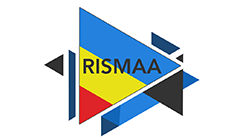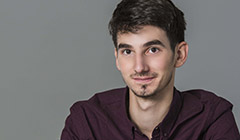Prof. Dr. Alexander Serebrenik, Eidhoven University of Technology: Gender and Community Smells
Va invitam sa participati la workshopul organizat in cadrul grantului ORCHESTRA.
Prof. Dr. Alexander Serebrenik va sustine prezentarea:
Gender and Community Smells
Invitat: Prof. dr. Alexander Serebrenik, Eidhoven University of Technology, Department of Mathematics and Computer Science, https://www.win.tue.nl/~aserebre/
Cand?
Miercuri, 9 Noiembrie 2022
12:30 – 13:30
Unde?
FSEGA Building, Room C335, Teodor Mihali Street, No. 58-60, 400591, Cluj-Napoca, Romania
Online participation: Teams meeting
Va asteptam!
Echipa ORCHESTRA
https://www.cs.ubbcluj.ro/~avescan/orchestra
Title: Gender and Community Smells
Abstract: Community smells are patterns indicating suboptimal organization and communication of software development teams that have been shown to be related to suboptimal organisation of the source code. Given a long standing association of women and communication mediation, we have conducted a series of studies relating gender diversity to community smells, as well as comparing the results of the data analysis with developers’ perception. To get further insights in the relation between gender and community smells, we replicate our study focusing on the Brazilian software teams; indeed, culture-specific expectations on the behavior of people of different genders might have affected the perception of the importance of gender diversity and refactoring strategies when mitigating community smells. Finally, we extend the prediction model by including variables related to national diversity and see how the interplay between national diversity and gender diversity influences presence of community smells.
This talk is based on a series of papers published in 2019-2022 and co-authored with Gemma Catolino, Filomena Ferrucci, Stefano Lambiase, Tiago Massoni, Fabio Palomba, Camila Sarmento, and Damian Andrew Tamburri.
Bio: Alexander Serebrenik is a full professor of social software engineering at the Eindhoven University of Technology, The Netherlands. His research goal is to facilitate evolution of software by taking into account social aspects of software development. His work tends to involve theories and methods both from within computer science (e.g., theory of socio-technical coordination, methods from natural language processing, machine learning) and from outside of computer science (e.g., organisational psychology). He is actively involved in organisation of scientific conferences and is member of the editorial board of several journals. He has won multiple best paper and distinguished reviewer awards.















